Cornelius Advance Directives Lawyer

Cornelius Advance Directives Attorney
At Thomas & Webber, we understand that preparing for the future can be overwhelming. The Cornelius advance directives lawyers of Thomas & Webber are here to help you through the process of creating clear, legally binding documents that protect your healthcare wishes.
What Is an Advance Directive?
A recent study found that 63% of older adults worry about becoming a burden on their families at the end of their lives. An advance directive is a legal document that specifies your wishes about medical treatment and end-of-life care if you become unable to communicate them yourself. Advance directives let you name another person to make decisions on your behalf. This can include decisions about life-sustaining treatment, resuscitation, artificial nutrition and hydration, and comfort care.
The purpose of an advance directive is to ensure your values and choices are honored. Without an advance directive, decision-making may fall to family members or the courts. Only about 46% of adults, aged 50-80, have at least one advance directive document in place in the U.S., according to one study.
Some key elements included in an advance directive include:
- Durable medical power of attorney
- Living will
- Do not resuscitate (DNR) order or instructions
- Instructions or limitations for feeding tubes, dialysis, and ventilators
- Organ donation preferences
- Comfort care/palliative care
While the broad concept of an advance directive is common across many states, the details vary by state.
Why You Need a Cornelius Advance Directives Lawyer
Hire an advance directives lawyer to have knowledgeable legal guidance when creating one. At Thomas & Webber, we walk you through state statutory rules and what makes your directive valid. Without compliance, your directive may be challenged or ignored.
Since every person’s values are different, we interview you about medical beliefs, spiritual values, and risk tolerances. This helps us craft a reliable, personalized directive that reflects your wishes.
Vague language can cause disputes among family members or doctors. Our skilled Cornelius advance directive lawyers explore potential conflicts and create legal documentation with clear language that leaves little room for interpretation.
Over time, your health status and personal beliefs may change. We help you review, revise, and reaffirm your directive when needed.
Common Types of Advance Directives in North Carolina
There are several types of advance directive documents and legal tools in North Carolina.
- Healthcare power of attorney: This document designates a healthcare agent to make medical decisions for you when you are incapacitated.
- Living will: A living will expresses your wishes regarding life-sustaining treatments. This can include mechanical ventilation, cardiopulmonary resuscitation, artificial nutrition, hydration, and dialysis, for example. You can specify what you want and don’t want regarding medical interventions.
- Do not resuscitate (DNR): Sometimes these orders must be entered in a hospital or clinical setting. Your advance directive may include DNR wishes to guide emergency personnel and hospital staff about resuscitation and intubation.
- Organ donation declaration: You may include in your advance directive your wishes regarding organ and tissue donation after death.
- Mental health advance directive: Though less common, some clients wish to plan for periods in which they may lack capacity due to mental health crises. A psychiatric advance directive can state preferences about medications, hospitalization, and treatment during a mental health emergency.
- Comfort/palliative care: You may include your preferences for end-of-life care.
- Burial wishes: You may include your wishes for arrangements, such as autopsy, cremation, and burial decisions.
Thomas & Webber can prepare documents that cover all of the above, so your healthcare and end-of-life planning is seamless.
Understanding North Carolina Advance Directive Laws
Understanding North Carolina’s advance directive laws can help you make more informed decisions. For example, North Carolina requires that you be of sound mind when creating documents. The document must then be signed in the presence of at least two competent adult witnesses. The named healthcare agent must also sign a statement accepting their role in certain medical documents. You may also revoke or amend the directive at any time while competent.
Out-of-hospital DNR orders may require forms recognized by EMS or hospitals and must conform to state EMS protocol. Healthcare providers must interpret the directive reasonably and sensibly, consistent with your expressed wishes and interests.
Thomas & Webber ensures your documents meet all statutory guidelines to prevent issues in the future.
FAQs
How Much Does an Advance Directive Lawyer Cost?
The cost of hiring an advance directive lawyer in North Carolina depends on the lawyer’s experience and specific location. Some attorneys include advance directives in estate planning packages. For complex medical wishes or family dynamics, hiring an attorney to help you navigate the complexities is essential. Many lawyers charge a flat fee for advance directives and estate planning needs.
Does an Advance Directive Need to Be Notarized in Cornelius, NC?
An advance directive in Cornelius, NC, must be notarized or signed in the presence of two qualified witnesses to be legally valid. These witnesses cannot be related to you. Some healthcare providers prefer notarized documents for clarity and legal strength. One document that does not require notarization is the Declaration of an Anatomical Gift, also known as the Organ Donor Card.
Can a Family Member Override an Advance Directive?
Generally, a legally valid advance directive cannot be overridden by a family member. This document reflects your wishes regarding medical treatment, so healthcare providers are required to follow it. If the directive is vague or outdated, hospitals may seek court intervention if a directive conflicts with medical standards. Be sure to discuss your plans with your family to avoid disputes and provide clarity for the future.
What Are the Three Main Types of Advance Directives?
The three main types of advance directives are the living will, the durable power of attorney, and a do-not-resuscitate (DNR) order. A living will outlines your preferences for end-of-life medical treatment. A healthcare power of attorney designates someone to make medical decisions on your behalf if you become incapacitated. A DNR instructs medical staff not to perform CPR if your heart or breathing stops.
Hire an Advance Directives Lawyer
Serving our residents living along Lake Norman, the experienced Cornelius advance directives attorneys of Thomas & Webber can help you navigate legal planning with peace of mind. When you are ready to move forward with creating your advanced healthcare directive, contact our office to schedule a consultation.



